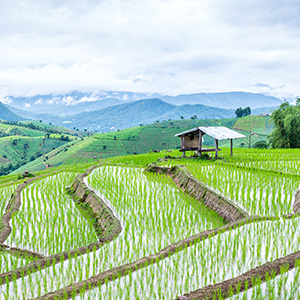As quality of life increases globally the pressure on the food system also increases. As we learn and understand more about the anthropogenic impact on environment there is a perceptible global shift to make better choices that will build more resilience in the contemporary food system.
How agriculture helped to build resilience for previous centuries, fermentation will for the 21st century. Fermentation and biology can usher in alternative ways of manufacturing critical macro ingredients for our food system to enable efficient use of land and water while delivering ingredients for cleaner and healthier living. String is leveraging its unique fermentation capabilities to deliver fermented proteins and protein-based ingredients as a clean and traceable replacement to plant and animal sources. Although the concept of fermented ingredients itself is several centuries old, our uniqueness is in the scale and efficiency.
Through our products, we strive to build resilient food systems and support the perceptible shift in the market space towards these choices.
PRODUCT BENEFITS

PERFORMANCE
Our products are low fat/high protein rich food components and provide optimal nutritional benefits. The bio availability of all the essential amino acids makes it better than plant based proteins. Ideal solutions with organoleptic features that appease the sensory palate.

QUALITY
String's fermentation process allows our products to be at the leading-edge of quality. Free from pesticide residues and other chemical contaminants, making it a better choice compared to contemporary products.
SUSTAINABILITY
Every tonne of our ingredients consume less land and water when compared to both plant based & animal proteins. In addition, they are helping capture carbon. Our solutions are designed to be better for the planet and you.

APPLICABILITY
Our products are tailor made to be unique yet universally functional. From cookies to crisps, from burgers to supplements, our solutions fit the requirements for a wide variety of food applications.
TESTIMONIALS

"Asia in itself will more than double its total spend on food over the next decade, from US$4 trillion in 2019 to over US$8 trillion by 2030. With rising incomes, food consumption is rapidly shifting from being carbohydrate-reliant to protein-heavy as people look for healthier, more nutritious and tastier food options."
Asia Food Challenge Report 2020
